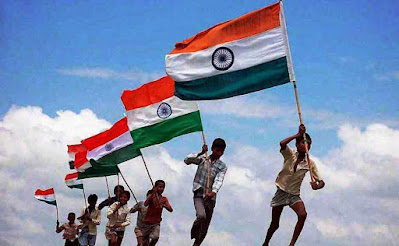Port Blair, Aug 14:
Since gaining independence in 1947, India has undergone remarkable
transformations, but the journey toward complete freedom remains ongoing for
its people. Economic inequality is a major challenge, with significant portions
of the population still living in poverty despite India's economic growth. The
wealth gap has widened, and there is a need for more inclusive development to
ensure that prosperity reaches all levels of society.
Corruption continues
to plague public institutions, eroding trust in governance and slowing down
progress. Despite various anti-corruption measures, it remains a systemic issue
that affects the delivery of public services and the equitable distribution of
resources. Social injustice, particularly caste-based discrimination, gender
inequality, and religious intolerance, also persists. These deep-rooted issues
continue to divide communities and hinder social harmony, preventing true
social equity.
Environmental
degradation is another pressing concern. Rapid industrialization and
urbanization have led to severe pollution, deforestation, and water scarcity,
threatening the health of both people and the environment. Addressing these
environmental challenges is crucial for sustainable development and the
well-being of future generations.
Access to quality
education and healthcare remains uneven, especially in rural areas, creating
disparities in opportunities and quality of life. The education system needs
reform to be more inclusive and accessible, and healthcare services require
significant improvements to reach underserved populations.
Furthermore, political polarization and rising communal tensions threaten social cohesion. The increasing divide along religious and political lines poses a challenge to national unity. Additionally, unemployment and underemployment, particularly among the youth, continue to be significant barriers to economic progress and personal fulfillment.
In recent years, concerns about the freedom of expression have also grown. Ensuring that the right to free speech and dissent is protected is vital for the health of India's democracy. The quest for freedom in India today involves not only political and economic liberation but also the realization of social, environmental, and democratic justice for all citizens.

Comments
Post a Comment